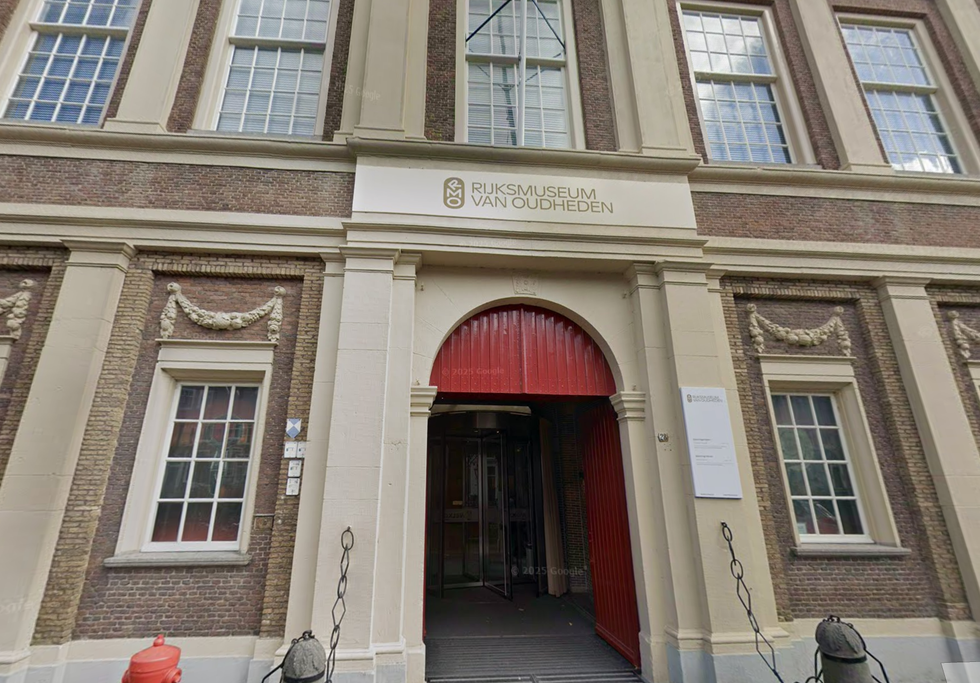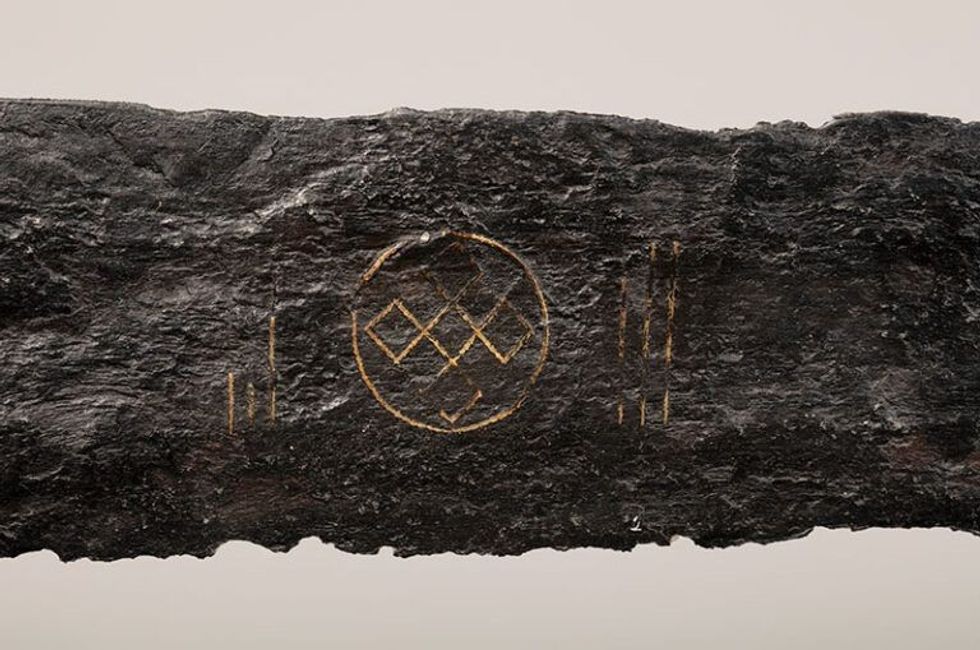Archaeologists dredge up 'barely corroded' 1,000-year-old medieval sword from river in remarkable discovery

Archaeology breakthrough: Historian Martyn Whittock speaks to GB News following the discovery of Thutmose II's tomb | GB News

Such discoveries have been called 'rare finds'
Don't Miss
Most Read
A 1,000-year-old sword has been discovered after being dredged up during a river search.
The medieval weapon, known as the Linschoten sword, is currently available to view at the Dutch National Museum of Antiquities in the Netherlands.
The artifact was found on March 1 last year when an excavator dug up clay from a river called Korte Linschoten and found "a long piece of iron just sticking out", the museum said.
The metal piece turned out to be a complete medieval sword, measuring one metre long.

The sword is on display at the Dutch National Museum of Antiquities in the Netherlands
|The Dutch museum said its characteristics, including its Brazil nut-shaped hilt pommel and wide crossguard, suggest the weapon was forged between 1050 and 1150 in the Netherlands.
"Medieval swords are very personal possessions: they were buried with the owner or (alternatively) 'sacrificed' in the water, it added.
"There they were often exceptionally well preserved. It is therefore a golden opportunity when one surfaces centuries later."
The museum described the iron on the sword as being "barely corroded" due to the lack of oxygen in the wet soil.
LATEST DEVELOPMENTS:

The Linschoten sword is 1,000 years old
|Ruben de Heer/Dutch National Museum of Antiquities
Museum curator, Annemarieke Willemsen, told Fox News Digital that medieval swords are "rare finds".
She said: "When [swords are found], [they're] often well-preserved because they are made of top-quality steel.
"[Many swords were] deposited in a river, where they rested for centuries under the water table, in an anaerobic environment."
The medieval weapon was donated to the Dutch National Museum of Antiquities in May where it will be on display until the end of August.

Decoration on the blade of the sword
|Ruben de Heer/Dutch National Museum of Antiquities
In another archaeology discovery, an Iron Age Roman settlement was found near a Cotswolds village.
Evidence of a Roman villa, an Iron Age burial, human remains, and a buried horse skull were among the discoveries made at the site near Willersery during excavations earlier this year.
Archaeologists were prompted to search the site after two Roman swords were found there during a metal detecting rally in 2023.
The historic weapons are currently on display at the Corinium Museum in Cirencester, where they will remain for public viewing until August 2.










